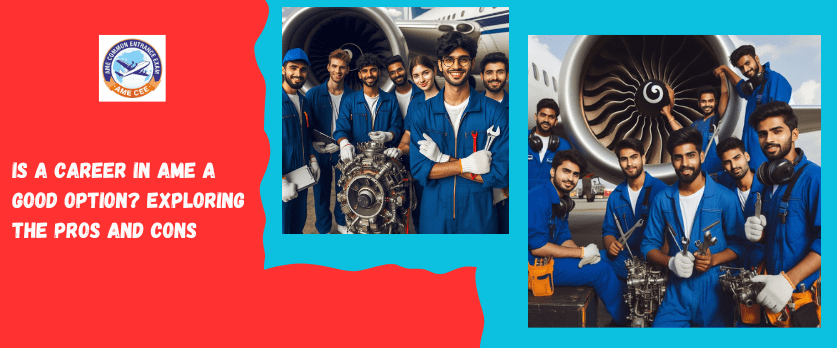Aircraft Maintenance Engineering (AME) is a field that often remains under the radar despite its crucial role in aviation safety and efficiency. For individuals contemplating their career paths, whether to pursue AME can be a perplexing decision. This article aims to provide an in-depth analysis of the pros and cons of pursuing a career in AME, particularly focusing on its viability, growth prospects, challenges, and rewards.
Pros of Pursuing a Career in AME
Lucrative Career Opportunities
AMEs are in high demand globally due to the continuous growth of the aviation industry. Airlines, aircraft manufacturers, maintenance repair organizations (MROs), and even defense forces seek skilled AMEs to ensure the airworthiness of their aircraft.
Job Stability
The aviation industry is known for its stability, even during economic downturns. With an increasing number of aircraft in operation, the demand for qualified AMEs remains steady, offering job security.
Hands-On Experience
AME training involves practical, hands-on learning, which can be appealing for individuals who prefer experiential learning over theoretical study. This aspect of the profession allows individuals to work directly with aircraft components and systems, gaining valuable technical skills.
Global Opportunities
The skills acquired through AME training are transferable across borders, opening up opportunities for international employment. Aviation is a global industry, and AMEs are sought after in various countries, offering the chance for cultural enrichment and diverse work experiences.
Fulfilling Career
Working as an AME can be highly rewarding, knowing that your expertise directly contributes to the safety of passengers and the efficiency of aircraft operations. The sense of responsibility and accomplishment associated with maintaining airworthy aircraft can provide deep job satisfaction.
Cons of Pursuing a Career in AME
Intensive Training and Certification
Becoming a licensed AME requires rigorous training and certification processes, which can be time-consuming and financially burdensome. Prospective AMEs must undergo approved training programs and pass examinations administered by aviation authorities.
High-Stress Environment
Aircraft maintenance often involves working under strict deadlines to ensure minimal aircraft downtime. The pressure to perform maintenance tasks efficiently and accurately, especially in time-sensitive situations, can contribute to a high-stress work environment.
Exposure to Hazards
Working with aircraft machinery and equipment exposes AMEs to potential hazards, including noise, chemicals, and physical injuries. Strict adherence to safety protocols is essential, but the inherent risks associated with the job cannot be completely eliminated.
Regulatory Compliance
The aviation industry is heavily regulated to ensure safety standards are met. AMEs must stay updated with evolving regulations and compliance requirements, which can add complexity to their roles and necessitate ongoing training and education.
Shift Work and Irregular Hours
AMEs employed by airlines or MRO facilities may be required to work shifts, including evenings, weekends, and holidays, to accommodate around-the-clock aircraft maintenance schedules. This irregular work pattern can disrupt work-life balance and may not be suitable for everyone.
Conclusion
In conclusion, pursuing a career in Aircraft Maintenance Engineering offers numerous opportunities for individuals passionate about aviation and technical proficiency. Despite the challenges associated with intensive training, high-stress environments, and regulatory compliance, the potential for job stability, global mobility, and fulfilling work makes AME a compelling career option for many. Ultimately, individuals considering a career in AME should carefully weigh the pros and cons outlined in this article to make an informed decision aligned with their interests and aspirations.


